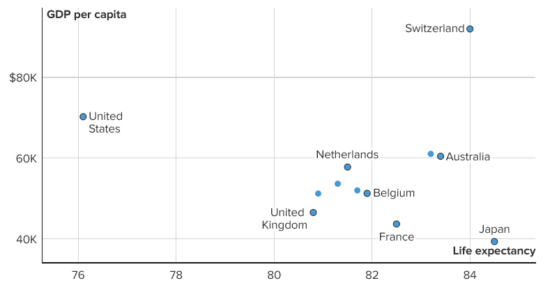Preventing mean kids, potential hangover cure, sesame shenanigans, and more
13 Apr 2023
Posted by Andrew Kantor
Probiotic of the dog
Hangover “cures” are as common as hiccup cures, and they’re at best hit or miss. Now Chinese scientists think they’ve got one that actually works thanks to, you know, science.
The idea is simple: “An enzyme called ADH1B accelerates the breakdown of alcohol in the body. Researchers genetically engineered a probiotic to express ADH1B in mice.” When they gave the mice the probiotic, it reduced the amount of alcohol they absorbed and let them recover sooner.
Picture this:
Untreated mice showed signs of drunkenness 20 minutes after exposure to alcohol. When the mice were placed on their backs, for example, they were unable to get back on their feet. But in the group that received a probiotic that expressed human ADH1B, half the mice were still able to turn themselves over 1 hour after alcohol exposure. A quarter never lost their ability to turn themselves over.
Fun fact: That ADH1B enzyme is common in East Asian and Polynesian populations, which is why you never get into a drinking contest with a Samoan.
Shout-out to GPhA’s Lucy
Check it out: GPhA’s marketing and communications manager, Lucy “Yes, I play the ukulele” Haney, was profiled in VoyageATL, where she talked about her role with GPhA, and how her creative background has helped her career in healthcare communications.
Working at GPhA allows me to support the growth and development of the pharmacy profession in Georgia, as well as to contribute to Georgian’s overall access to healthcare (after all, pharmacists are the most accessible healthcare professionals)!

Mean kids need their vitamins
If you’ve spawned a mean kid (we won’t say mean girl because we all know they come in both flavors), you might want to consider vitamins. Really.
A Canadian review study (in the journal Aggression and Violent Behavior) — found that in between “psychosocial interventions” and prescription meds are supplements to help the nervous system develop properly — before Junior can recite the Miranda warning from memory.
Well, maybe. The results of 22 studies that covered macro- and micro-nutrients were mixed, although 14 of them found vitamins and other supplements (e.g,. omega-3 fatty acids) had beneficial effects on aggression. A full 19 studies found they could help depression and even symptoms of ADHD.
The conclusion: A single supplement may not help, but “wide-range vitamin and mineral supplements may have beneficial effects in reducing excessive hetero-aggression in children and adolescents.”
Don’t believe the lies (and live longer)
The US continues to lag the rest of the developed world in life expectancy — Americans average 3 to 5 years less — and it’s getting worse. One reason, says FDA commish Robert Califf, is the spread of misinformation (what we used to call lies).
Our medical system is almost as good as that of Western Europe, for example, but we simply don’t use it as well because too many people believe what they see on social media.
“Why aren’t we using medical products as effectively and efficiently as our peer countries? A lot of it has to do with choices that people make because of the things that influenced their thinking,” Califf said.

Peanut allergy vaccine in the works
These days half of new treatments seem to involve either mRNA or nanotechnology. Now UCLA immunologists are using both, and they think they’ve got essentially a peanut allergy vaccine. It delivers an mRNA payload to the liver, where they “teach the body’s natural defenses to tolerate peanut proteins.”
It works similarly to how mRNA vaccinations prevent Covid-19, but instead of encoding for the SARS-CoV-2 spike protein, it encodes for a peanut protein — one that doesn’t trigger an allergic reaction, but that primes the body to deal with the peanut proteins that do present a problem.
Soon you’ll be able to schedule that Royal Caribbean cruise
How about a vaccine against food poisoning? Specifically, against norovirus? How ’bout if we throw in protection from rotavirus, too?
That’s what Washington University in St. Louis molecular microbiologists think they’ve accomplished. They piggybacked a norovirus protein onto an existing rotavirus vaccine and presto: “Mice that received the experimental vaccine produced neutralizing antibodies against both rotavirus and norovirus.”
So far it’s just in vitro and in mouse-o, but obviously more experiments are underway.
The Long Read: When bacteria play possum
Antibiotic resistance has a cousin: antibiotic tolerance, where bacteria aren’t killed by a drug, but instead slip into a dormant state, waiting for the danger to pass. A microbiologist explains.
Short Takes
Well that’s not good
China reported the first human death from the H3N8 bird flu. It had been found in humans for the first time last year.
Elmo needs his Epi-Pen
Food manufacturers found it’s less expensive to add sesame to food — and add a warning label — than to sterilize the equipment so they can call it “sesame-free” as a new law requires.
The result? Foods that sesame-allergic kids and adults have eaten safely for years are now potentially life-threatening.
ICYMI: STIs on the rise
Sexually transmitted diseases hit a record high in the US in 2021 according to the latest CDC data — up 5.8% from 2020, in fact.
Some STIs such as syphilis saw their highest numbers in more than 70 years. The 176,713 syphilis cases recorded in 2021 were the highest since 217,558 in 1950.


